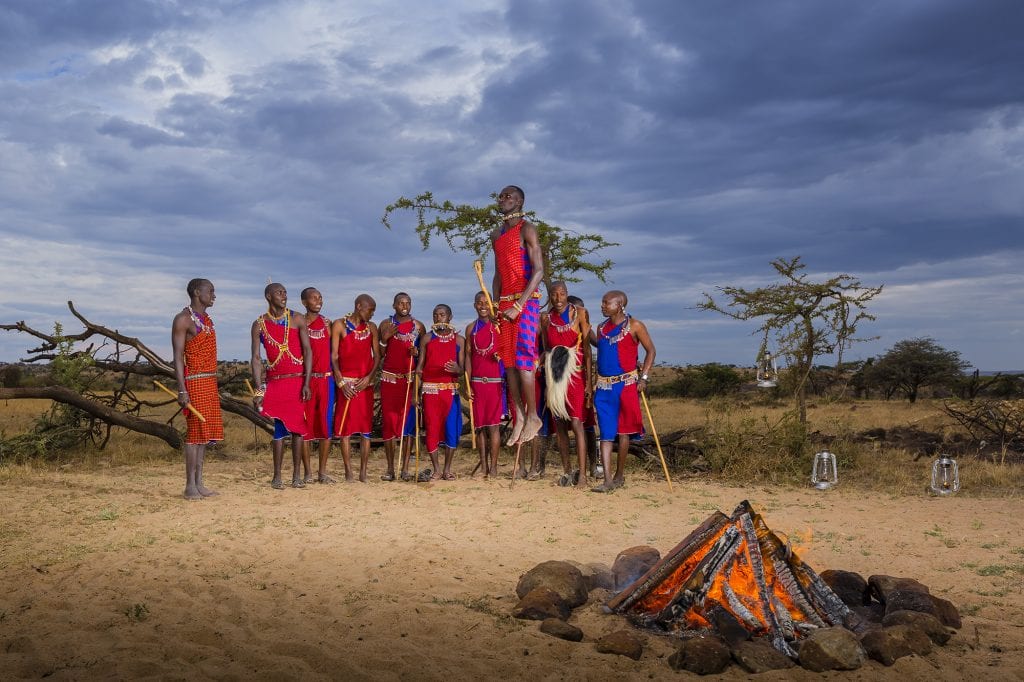
Did you know that the Maasai people are one of the most fascinating and iconic ethnic groups in Africa? Renowned for their distinctive customs, colorful attire, and fierce warrior reputation, the Maasai tribe inhabits the vast savannas of northern, central, and southern Kenya and northern Tanzania.
The Maasai Tribe: A Cultural Odyssey
Imagine a land where ancient traditions and modern life intersect, where tall, elegant warriors stride across the plains with a regal bearing that commands respect. This is the world of the Maasai, a Nilotic ethnic group known for their vibrant culture and indomitable spirit.
The Maasai have captured the world’s imagination, not just because of their striking appearance and warrior ethos but also because of their deep connection to the land and their steadfast adherence to age-old customs. Their lifestyle, languages, and traditions offer a window into a way of life preserved through centuries despite the encroachment of modernity.
Read: The Oromo – Ethiopia’s Largest Ethnic Group
Origin and Migration of The Maasai
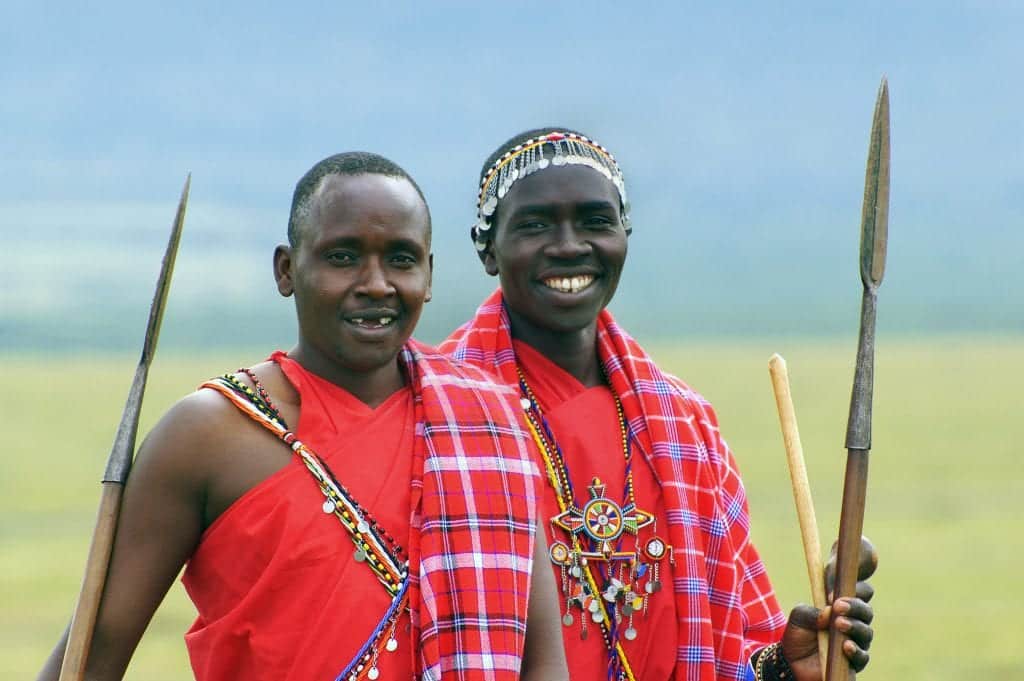
The Maasai’s journey began in the African Great Lakes region, arriving from South Sudan. They belong to the broader Nilotic group, which includes other tribes like the Turkana and Kalenjin. Historically, the Maasai were known as formidable warriors and cattle rustlers, a reputation that still echoes today. Their expansion across East Africa saw them adopting practices from neighboring Cushitic-speaking groups, including the age-set system, circumcision, and certain vocabulary terms.
Settlement and Expansion
By the mid-19th century, the Maasai territory extended over a vast area, covering almost all of the Great Rift Valley. Their raids and migrations were legendary, with reports of large groups of Maasai warriors moving across the land, instilling fear with their spears, shields, and expertly thrown clubs known as orinka. However, their period of expansion was followed by a challenging era marked by epidemics and drought, significantly impacting their population and cattle.
Culture and Society
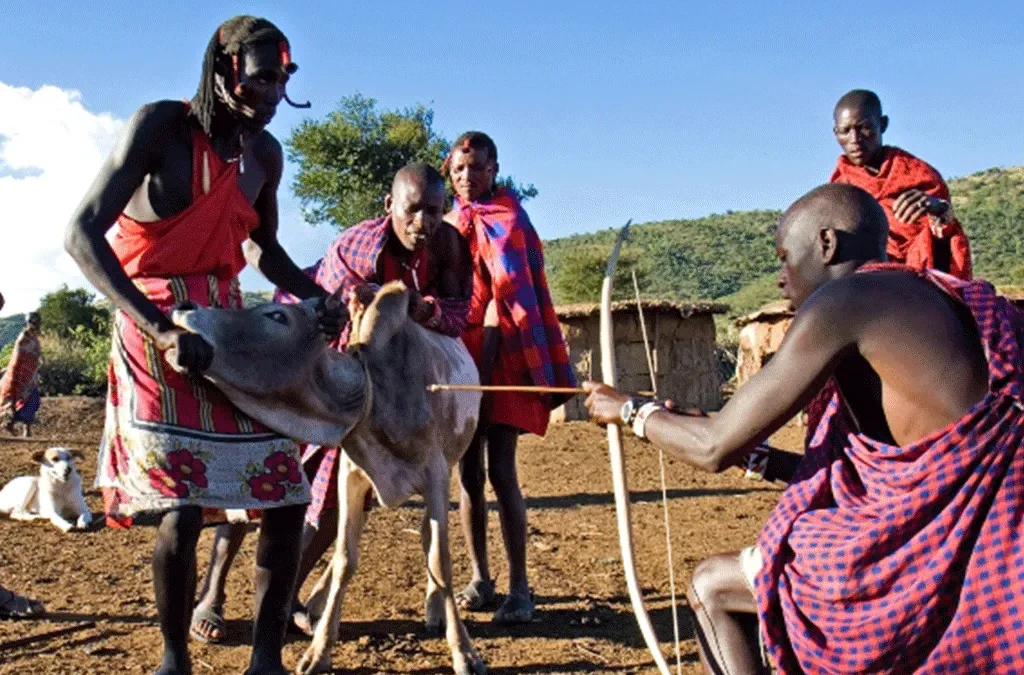
Maasai society is deeply rooted in its pastoral lifestyle. Cattle are central to their way of life, providing food, clothing, and status. Maasai culture is patriarchal, with wealth measured in cattle, wives, and children. Their social structure is organized into age sets, with rituals marking the transition from one stage of life to another.
One of the most distinctive aspects of Maasai culture is their attire. The shúkà, a bright red garment, symbolizes the Maasai and their identity. Both men and women adorn themselves with intricate beaded jewelry, each telling a story of social status, marital status, and other personal milestones.
Read: Fashionable Ways to Wear Your Gele
Religion and Beliefs
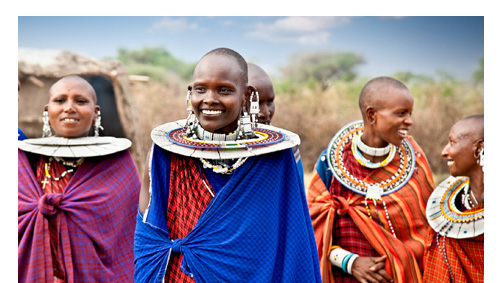
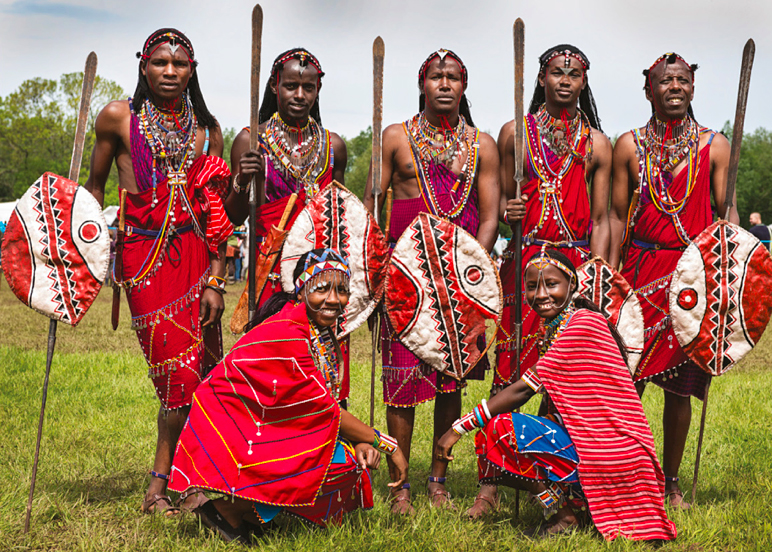
The Maasai are monotheistic, worshipping a single deity called Enkai or Engai, who has a dual nature represented by Engai Narok (Black God) and Engai Na-nyokie (Red God). The laibon, or spiritual leader, plays a crucial role in Maasai society, serving as a healer, prophet, and rainmaker.
Genetic Heritage of The Maasai
Genetic studies have provided insights into the Maasai’s ancestry, revealing a mix of Nilotic and Cushitic influences. These findings reflect the historical interactions and assimilations that have shaped the Maasai people over millennia. Despite genetic diversity, the Maasai have maintained a strong cultural identity, continuing to practice traditions passed down through generations.
The Maasai tribe, with its rich history, vibrant culture, and enduring traditions, remains a symbol of Africa’s diverse cultural tapestry. Its resilience and adaptability in the face of modern challenges are a testament to its strength and unity. As the world changes, the Maasai continue to stand as guardians of a unique way of life, inspiring respect and admiration from all who encounter its story.
If you’ve enjoyed learning about the rich history, unique customs, and resilient spirit of the Maasai people, why not dive deeper? Explore our additional resources, watch documentaries, or even plan a visit to experience their vibrant traditions firsthand.
Stay connected with us for more intriguing insights into cultures from around the world. Subscribe to our newsletter, follow us on social media, and share this article with friends and family to spread the knowledge and appreciation for the Maasai and other diverse communities.
